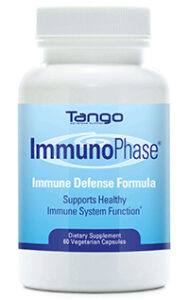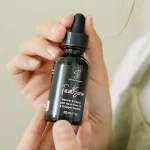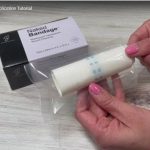It is almost impossible to exist in today’s world without stress. We all feel it: the pressures of job, home, kids, health, finances, you name it. Never before in history have humans had so much to do, and we rarely have a chance to catch our breath.
On one hand, stress isn’t always bad. It can be a motivator, helping to get you out of bed in the morning and sending you to the office, or giving you a surge of energy when you need it to escape danger.
On the other hand, there is the kind of sustained stress, called chronic or toxic stress which overrides your body’s natural abilities to bounce back, causing an unhealthy rise in stress hormones, and negatively affecting our overall health. It can lead to a wide range of problems from anxiety and depression to overt physical conditions such as high blood pressure, ulcers, migraine headaches, back pain, weight gain and diabetes. One of the most insidious results of chronic stress is its effect on our immune system, increasing susceptibility to everything from colds and flu to cancer. It’s estimated that at least 75 percent of visits to doctors’ offices are due to stress-related illness.Our responses to stress are ancient and instinctive. Any hint of danger causes our adrenal glands, located above the kidneys, to release adrenaline, causing rapid breathing and heart rate, and sending extra blood sugar to the muscles in preparation to fight or run. This “fight-or-flight” response worked just fine when we were fleeing from saber-toothed tigers. However, this protection mechanism doesn’t serve us very well today when the threats are far more often mental and emotional. After all, you can’t run away from your desk, your ringing telephone, your driver’s seat in unmoving traffic, or the boss’ insistence that you work overtime. You may grumble, growl, or grit your teeth, but the stress response remains and the next phase sets in. Your adrenals now release cortisol, the hormone of chronic stress, in an attempt to shore you up.
Over time, this toxic stress diminishes your body’s ability to produce cortisol and another adrenal hormone, DHEA (dehydroepiandrosterone), when you need them. You become even less able to respond in an appropriate way to stressors.
Interestingly, the emotional stress of happy life events such as having a baby, getting married, buying a new house, or getting a promotion can have the same physiological effects as dealing with the major illness of a close member of your family, losing a job, or having a family member in jail. The stress itself is not the issue. Stress is in our lives whether we like it or not. The real question is this: how do you deal with it?
Dealing with Stress
Popular solutions have been using alcohol or tranquilizers, which promote the release of the feel-good brain chemicals, dopamine and endorphins, as well as GABA (gamma-aminobutyric acid), the relaxing neurotransmitter. However, they also upset your neurotransmitter and blood sugar balance, causing all kinds of problems ranging from emotional and mental imbalance to addiction and withdrawal.
Fortunately, there are numerous natural ways to break the cycle safely and without side effects. First of all, you must be able to recognize when you’re experiencing stress, taking action to break the stress cycle, and using long-term methods to keep it from spiraling out of control. Start by getting enough sleep—at least 7 hours nightly. Lack of quality sleep can make you cranky and irritable and more susceptible to stress-related illness, including immune system suppression. Then, eat a healthy diet with high-quality protein from seafood, lean meats, soy, beans, and whole grains to keep your blood sugar stable, thereby controlling the release of stress hormones. Adequate hydration is also important—8 glasses of water daily. Then eliminate or greatly reduce your intake of caffeine, a major dietary stressor.
A daily regimen of yoga is one of the best long-term ways of addressing the stresses of modern life. And another sure-fire 30-second stress buster is deep breathing. Whenever you feel any of the signs of stress, stop and take three full, deep, slow breaths. It will give you time to think, to rebalance, and to slow down and respond rather than unthinkingly react to the stressor.
Exercise is also a great safety valve. It actually helps your body break the acute stress cycle and allows your hormonal system to return to balance.
While you cannot control the world around you, regular meditation can help you control your reactions to it. Not just some esoteric Eastern practice, meditation is actually an integral part of virtually every world religion. It helps you find a way above the turbulence of daily life, and it just might help awaken you to the “big picture” in which everything in life falls into place.
You may protest that you don’t have time to do these exercises or techniques. However, you don’t have time not to do them! You will be far more productive (not to mention happy!) when you include them in your daily schedule.
The Role of Supplements
A variety of supplements can both prevent the stress response and restore balance in chronic stress. Be sure to take a multivitamin, which provides co-factors to support your biochemistry. In addition, take extra B vitamins: since they are used in making the stress hormones and neurotransmitters. Also take omega-3 fatty acids, since fats make up 60 percent of the brain’s weight, and these essential fatty acids are needed for healthy brain cell communication.
My own stress-control formula is Natural Mind CALM, a combination of L-theanine, GABA, L-glutamine, taurine, hops, passionflower, and lemon balm, with B vitamins and magnesium. L-theanine, a major ingredient in green teat promotes a sense of calm alertness. L-Glutamine can cut a craving almost on the spot. It’s absorbed quickly and will give you an almost instant pick-me-up similar to your longed-for stimulant, whether it’s sugar or alcohol. Taurine functions as a mild sedative by enhancing the activity of GABA in the brain. It reduces irritability, insomnia, migraines, alcohol cravings, and depression.
Unlike western medicine, more traditional medical systems address the need to support the adrenal glands, using a variety of adaptogens such as rhodiola, ginseng, eleutherococcus (Siberina ginseng), or reishi mushroom. My Natural Mind Energy formula contains all of these, as well as tyrosine, a precursor to the feel-good neurotransmitter, dopamine, which is further converted to adrenalin.
Immune Booster
All of these diet, lifestyle and nutritional solutions will support your immune system indirectly by reducing your stress response. There are also more specific immune-boosting supplements, from vitamin C, echinacea, astragalus, and elderberry extract, to some highly effective combination formulas. Most recently, I discovered an herbal cold and flu formula that has demonstrated impressive anti-viral effects. It was used during the SARS epidemic in China to protect health-case workers exposed to infected patients, since up to 25 percent of all cases were the very doctors and nurses caring for the ill. Not only did none of the 40,000 workers who took the formula catch the disease, but they also showed a boost in their overall immune function.
 Developed by renowned Chinese researcher, Dr. Dexin Yan, this single formula is now available in the U.S. as ImmunoPhase. By enhancing the immune system during the first signs of infection, ImmunoPhase aids in repelling the virus before it has a chance to spread. In addition to its being highly effective at preventing illness when taken at the first signs of an impending cold or flu, ImmunoPhase has also been shown to relieve symptoms and enhance the immune system for a more rapid recovery when taken after you have already caught a cold or flu.
Developed by renowned Chinese researcher, Dr. Dexin Yan, this single formula is now available in the U.S. as ImmunoPhase. By enhancing the immune system during the first signs of infection, ImmunoPhase aids in repelling the virus before it has a chance to spread. In addition to its being highly effective at preventing illness when taken at the first signs of an impending cold or flu, ImmunoPhase has also been shown to relieve symptoms and enhance the immune system for a more rapid recovery when taken after you have already caught a cold or flu.
Remember, stress is inevitable. It’s how you choose to handle it that will make all the difference in your life and your health.











